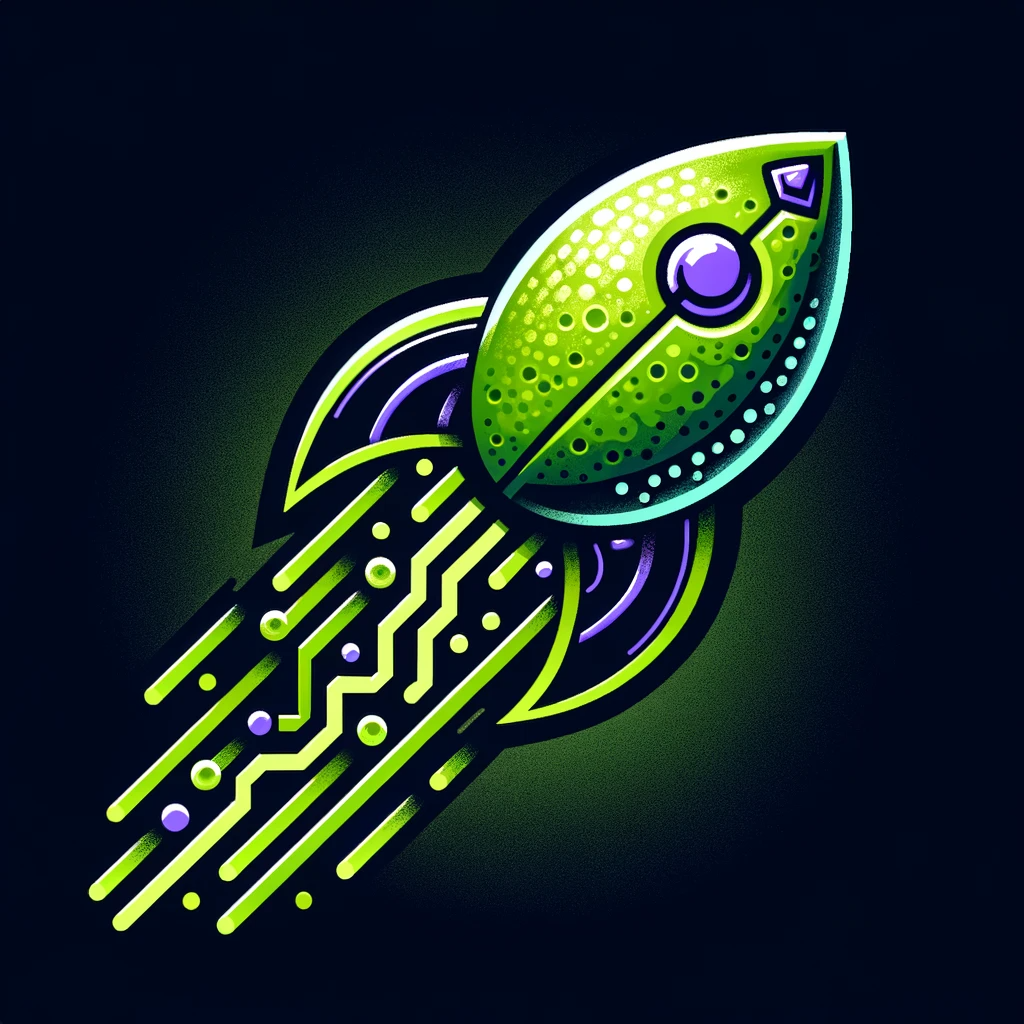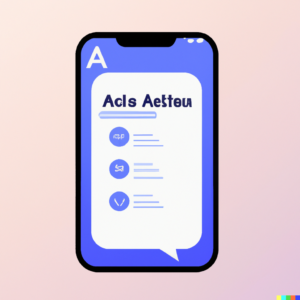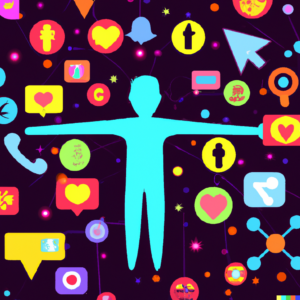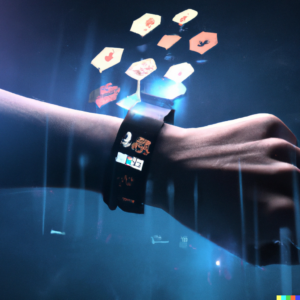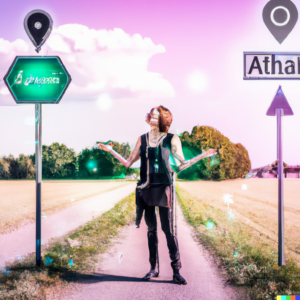Meet Your Invisible Partner: The AI in Your Pocket
Artificial Intelligence (AI) has steadily infiltrated our lives to such an extent that it’s now difficult to imagine a world without it. In today’s digital era, AI isn’t confined to sci-fi movies or research labs; it’s in your pocket, desk, or home – it’s ubiquitous. From simple tasks like unlocking your phone with facial recognition to more complex ones like suggesting what to buy next based on your browsing history, AI is subtly operating behind the scenes to improve user experience and make life easier.
It’s like having a personal assistant available round the clock, never getting tired, or taking a day off. Your phone’s virtual assistant? That’s AI. The recommendations you get when you shop online or stream music? That’s AI too. AI’s presence in our lives is pervasive and growing. It’s time to take a closer look at the AI in your pocket, the silent partner that helps you navigate your daily life with increasing ease and convenience.
AI Personal Assistants: Your Virtual Secretary: AI Assistants That Learn and Adapt
Think of all the times you’ve asked Google Assistant for weather updates, used Siri to set reminders, or Alexa to control smart home devices. These interactions have become so commonplace that it’s easy to forget we’re conversing with complex algorithms. These AI personal assistants, functioning as our virtual secretaries, have transformed the way we manage our daily tasks.
Google Assistant, Siri, Alexa, and other AI assistants, armed with Natural Language Processing (NLP) and machine learning capabilities, can understand, learn from, and respond to human speech. They’re designed to learn your routines, anticipate your needs, and make your life easier. From setting alarms and reminders, sending texts, making calls, playing your favorite music and even telling jokes, these AI assistants have many capabilities.
Furthermore, their utility extends beyond answering questions or carrying out commands. They can learn from your behavior and preferences to offer personalized services. For example, Google Assistant can learn your commute route and inform you of traffic conditions. Alexa can keep track of your favorite songs and suggest similar music.
But perhaps the most significant advantage of these AI personal assistants is their ability to connect and control other smart devices. They can adjust your thermostat, turn off your lights, or lock your doors at a simple voice command, making your life not only more comfortable but also more efficient.
In essence, AI personal assistants are revolutionizing our interaction with technology, making it more intuitive and integrated into our everyday lives. They’re a prime example of the AI in our pockets and a testament to how far AI technology has come.
Recommendation Engines: Curated Just for You: AI’s Role in Personalized Recommendations
You’ve probably noticed how Netflix seems to know exactly what movie you want to watch next, or how Spotify always manages to create the perfect playlist for your mood, or how YouTube seems to offer just the right videos to binge on. This isn’t magic, it’s all thanks to AI-powered recommendation engines.
Recommendation engines are an integral part of AI as a utility. They’re algorithms that predict what a user would like to see based on their behavior and preferences. The engine takes into account your past interactions, such as the films you’ve watched or the music you’ve listened to and combines this information with other users’ similar behavior to offer tailored suggestions.
Take Netflix, for example. Their recommendation engine uses a variety of data, from your viewing history, ratings you’ve given, and even the time you usually watch, to provide you with a list of movies or series you’re likely to enjoy. YouTube uses a similar process, analyzing your past viewed videos, likes, and even the amount of time you spend watching a particular video to recommend new content.
Music streaming platforms, like Spotify, take it a step further by using AI to analyze the music you listen to. It examines factors like genre, tempo, pitch, and even the musical structure to recommend songs that match your taste.
Recommendation engines, thus, enhance our online experience, making it more personalized and engaging. They save us the time of sifting through endless options and provide us with tailored content that we’re likely to enjoy. They’re an excellent example of how AI, as a utility, enhances our digital experiences.
AI in Social Media: Creating Connections: AI’s Role in Social Media Interactions
As our lives become increasingly intertwined with social media, AI has become the invisible puppet master, guiding our interactions, shaping our feed, and connecting us with our ‘tribe’. Whether it’s suggesting new friends, customizing our newsfeed, or serving targeted advertisements, AI plays a central role in our social media experience.
Consider the ‘friend suggestions’ on Facebook or ‘who to follow’ on Twitter. These aren’t random but the result of complex AI algorithms that analyze numerous factors: mutual friends, shared interests, common activities, similar locations, and much more. The goal? To connect you with people you’re likely to know, or at least have something in common with, enhancing the social aspect of social media.
Your newsfeed, too, is carefully curated by AI. Platforms like Instagram and Facebook use AI algorithms to analyze your interactions – the posts you like, share, comment on, or even spend time viewing. This information is used to prioritize posts in your feed, ensuring that you see content that is most relevant to you.
And then there are targeted advertisements, a feature that might feel intrusive, but is undoubtedly effective. By analyzing your online behavior, interests, and demographics, AI can serve you ads that are tailored specifically to you, increasing the likelihood of engagement.
The use of AI in social media not only creates a more personalized user experience, but also encourages community building, or finding your tribe. By connecting you with like-minded individuals or content you are likely to enjoy, AI has fundamentally transformed our social media interactions, and serves as another example of AI functioning as a utility in our everyday lives.
Health and Fitness: Your AI Health Coach: Fitness and Wellness, Personalized and Tracked
As health and fitness move to the forefront of societal concerns, the integration of AI in this space has been a game-changer. Today, AI has not just become a companion in our health and fitness journey, but often a coach, guiding us and tracking our progress along the way.
One of the most common applications of AI in health and fitness is in workout trackers. Wearable devices like Fitbit, Garmin, and Apple Watch use AI to monitor your physical activity levels, heart rate, and even stress levels, providing insights about your workouts, and suggesting personalized fitness plans based on these data.
Moreover, AI-enabled diet planners have revolutionized the way we approach nutrition. Apps like MyFitnessPal and Lifesum leverage AI to analyze your food intake, count calories, and balance macronutrients. They can also suggest diet plans based on your specific goals, whether it’s weight loss, muscle gain, or maintaining a healthy lifestyle.
Not forgetting sleep, an essential yet often overlooked aspect of health. AI-powered sleep trackers like Sleep Cycle and Sleep Score not only monitor your sleep patterns but also provide recommendations to improve your sleep quality.
AI is also making inroads into mental health, with apps like Woebot providing cognitive behavioral therapy, and platforms like Headspace and Calm using AI to personalize meditation and mindfulness practices.
The fusion of AI and health and fitness technology is providing people with personalized insights, motivational tools, and easy-to-digest health data, empowering them to take control of their health. AI has indeed become our personal coach, offering advice, providing encouragement, and nudging us towards healthier habits. This symbiosis of AI and health technology is another fascinating demonstration of AI as a utility in our everyday lives.
Future Implications: Beyond Today: Imagining AI as the Ultimate Life Companion
In the age of smart homes, self-driving cars, and personalized shopping, the presence of AI in our daily lives is growing at an incredible pace. The integration of AI in personal life is not just about making tasks easier; it’s about enhancing our ability to connect, learn, and grow.
We’re already seeing early signs of AI’s potential to act as life companions. More sophisticated virtual assistants are emerging with capabilities beyond setting reminders or checking the weather. They are now able to understand emotions, context, and even offer companionship. For instance, AI chatbots are increasingly used for mental health support, providing immediate, anonymous, and non-judgmental support to those in need.
Soon, we could see AI further customizing our experiences in every aspect of life, from personalized learning to smart healthcare. Imagine an AI-powered tutor that knows exactly how you learn best, or an AI health coach that can provide personalized diet and exercise plans based on your genetic makeup, lifestyle, and health goals.
However, this brave new world of AI companionship also brings with it a raft of ethical and societal implications. As AI systems become a larger part of our lives, issues such as data privacy, algorithmic bias, and the digital divide become more significant. Furthermore, as AI begins to take on roles traditionally held by humans, questions of human interaction and social connection come to the fore.
The future of AI as a life companion is promising, but it’s crucial to navigate these challenges and consider the implications of integrating AI into our personal lives. Balancing the benefits with the potential risks, striving for equity in access, and continuously exploring ethical boundaries are the keys to harnessing AI’s potential responsibly.
Conclusion: Seizing the AI Era: Embracing Personalized Efficiency in Everyday Life
The unfolding landscape of artificial intelligence stretches far beyond our current grasp, holding the promise of a future where AI intricately weaves into the fabric of our everyday lives. It’s not just the smartphone in your hand or the car you drive – from the way you shop to the method you interact with your doctor; AI is progressively claiming its place as an integral aspect of our daily existence.
This journey into the realm of AI utility is not solely about automation and efficiency; it’s about personalization and enhancement of our experiences. The ability of AI to tailor services, products, and information to our specific needs is transforming our world, offering us unprecedented control over our interactions.
Whether it’s in the domain of entertainment, health, or communication, AI is creating an ecosystem of services that adapt to us, rather than us having to adapt to them. This shift signifies a fundamental change in the way we interact with technology, and indeed, the world around us.
However, the utility of AI isn’t without its challenges. Issues such as data privacy, cybersecurity, and the ethical use of technology are hot topics that need our attention and thoughtful navigation. As we tackle these concerns, the potential for AI to revolutionize our lives becomes increasingly clear.
So, as we stride forward into this thrilling future, it’s not only about welcoming AI into our homes and pockets, but also about understanding its influence, integrating it responsibly, and harnessing its capabilities for our advantage.
Embrace the rise of AI as a utility – it’s not merely about making life easier, but about redefining what’s possible in our everyday lives. Welcome to the future, personalized by AI.
